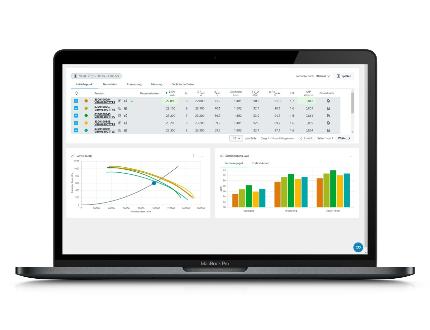
In a move eagerly anticipated by the HVAC&R industry, the California legislature on August 30 voted to pass the California Cooling Act (CCA), with a concurrence vote in the Senate finalizing the process.
The bill, SB 1013, is the first statewide law to authorize financial incentives for low-GWP refrigeration systems that include natural refrigerants. It directs the California Air Resources Board (CARB) to establish the incentive program to increase adoption of replacement technologies in the supermarket and industrial sectors by overcoming the first-cost hurdle.
The legislation also preserves deadlines that the U.S. Environmental Protection Agency established in 2016 for businesses to transition from HFCs – the fastest growing source of greenhouse gas emissions in California – to alternative refrigerants. The EPA abandoned those deadlines this year in response to a U.S. Court of Appeals ruling in 2017.
The CCA was authored by Senator Ricardo Lara (D–Bell Gardens), who has championed other pieces of legislation on HFC reduction, including SB 1383, which commits the state to reduce HFC emissions by 40% by 2030. Accelerate America magazine named Lara its 2018 Person of the Year in June at the ATMOsphere America conference in Long Beach, Calif., where he delivered the keynote address. (shecco, publisher of this website, is the publisher of Accelerate America and organizer of ATMOsphere America.)
Senator Lara introduced California Cooling Act last year at the U.N. Climate Conference in Bonn, Germany, where he and Governor Jerry Brown received the first Climate and Clean Air Award for their work together on SB 1383.
“The California Cooling Act shows that cleaner air does not need to be a choice between protecting our planet and growing our economy,” said Senator Lara. “With Washington embracing climate change denial, California is ... charging ahead to reduce super pollutants and do our part to fight global warming.”
The California Assembly voted in favor of the bill on August 29, which was followed by the concurrence vote yesterday. Brown has until September 30 "to act on SB 1013 or allow it to become law," said Lara's office in a statement. Brown's support is expected, as he proposed $20 million in incentives for HFC reduction in his 2016-2017 budget; those funds were not approved by the legislature.
Funding for SB 1013's incentive program must still be allocated by the legislature so that CARB can form the program and initiate a stakeholder process to shape its scope and guidelines.
This landmark legislation demonstrates how states can champion tangible climate action by moving away from super-pollutant HFCs. – Avipsa Mahapatra, EIA
Passage of the bill has been warmly greeted by environmental groups.
“With the passage of the Cooling Act, California has established a comprehensive backstop for federal regulations on HFCs that were recently vacated,” said Avipsa Mahapatra, climate campaign lead for the Environmental Investigation Agency (EIA), Washington, D.C. “This landmark legislation demonstrates how states can champion tangible climate action by moving away from super-pollutant HFCs. In the United States, actions like this would enhance market uptake of climate-friendly technology by increasing economies of scale. Internationally, it will help the U.S. stay on track to meet its global climate commitments, including under the Montreal Protocol’s Kigali Amendment to phase-down HFCs globally.”
Added Christina Starr, EIA Climate Policy Analyst: “We applaud Senator Lara and the California legislature for their leadership in adopting this important legislation, particularly the innovative approach it takes to incentivizing new technology uptake by end users such as supermarkets. It is a promising model for other states considering climate action on HFCs as part of their commitment to raising the bar on non-federal climate action.”
Observed Helena Molin Valdés, head of the U.N. Environment-hosted Climate and Clean Air Coalition: “The passing of the California Cooling Act will have positive impacts far beyond California by encouraging the global supply chain to adopt less-polluting and more energy-efficient cooling technologies. This bill will drive innovation, is good for business, and helps protect our planet."
The CCA was supported by public health and environmental groups, including the American Lung Association, Natural Resources Defense Council, Sierra Club, and more than 15 major refrigeration manufacturers including Bosch, GE, LG, Electrolux and Whirlpool.


























